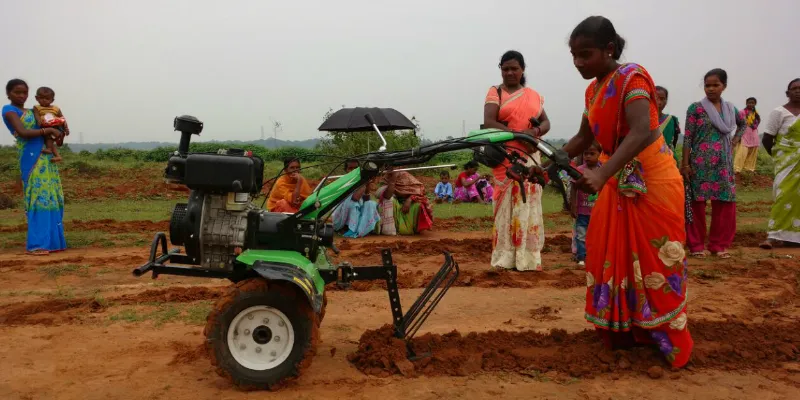Over 51pc of work done by women in India is unpaid: UN Report
In the report released by the high-level panel set up by the UN Secretary-General titled “Leave No one Behind,” startling statistics about the state of labour among women come to the fore. It states that over 51 percent of work done by women in India does not get monetary compensation, and is unpaid labour, essentially, and unaccounted for in national statistics. The report was released in India yesterday by Commerce and Industry Minister Nirmala Sitharaman.

An excerpt from the report reads, “Hundreds of millions of women work informally without social and labour protection in law or in practice. In India, for example, some 120 million women (around 95 percent of women in paid work) work informally.”
The report states, “Expanding opportunities for women in informal work is integral to realising Sustainable Development Agenda by 2030, with some estimates even putting this proportion at 85–92 percent."
Noting that there was a 22 percent decline in women's labour participation in India, the report cites regressive social norms, lack of legal protection, disparity in access to digital means, and lack of affirmative action taken to tackle the issue of unpaid work, as the main barriers to women's participation in the workforce. It has requested urgent action by all stakeholders to eradicate these hurdles through government, business, and civil reforms.
“Worldwide, some 2.3 billion women do not have any internet access and more than 1.7 billion do not own a mobile phone…. Across developing countries, 23 percent fewer women than men have access to the internet,” says the report.
“This is the first time that women were being seen as economic actors. If women are made equal in the labour force, India’s GDP will go up by 60 percent and world GDP by 20 percent,” said Renana Jhabvala (SEWA) at the launch of this report, according to an article by Hindu.
Understanding unpaid work
The report recognises that not all of women’s work is recognised as productive or included in mainstream economic discussions or measures of gross national income. Hence, the value of unpaid care work done by women is at least $10 trillion, or 13 percent of global GDP.
This work may also refer to extra hours put in by women at work. Data from 65 countries suggest that women spend 45 minutes more on average than men on paid and unpaid work every day, almost six additional weeks of total work annually, and 5.5 extra years over five decades.
Globally, women do three times the unpaid work and care as men – like caring for children, the elderly and ill; routine household chores such as cooking, cleaning and fetching food, water, and firewood; and home production for own consumption. The report elaborates, “Because most women, like most men, follow gender norms and stereotypes, it may be difficult to distinguish norms from preferences in how men and women share unpaid work and care responsibilities.”
Their participation typically falls sharply during the age of childbearing (25–34 years). Women often work part time to balance work and family responsibilities — a balancing feat particularly hard for those with young children and other dependents such as elderly relatives. A survey in China found that 95 percent of women already have responsibilities for elderly relatives, and “daughterly guilt” affected an extraordinary 88 percent of Chinese women surveyed.
Need for legal protection
The report also emphasised on the need for legal protection of these informal workers – who may not have written contracts and hence, may not come under the purview of labour laws, or for property and assets rights as entrepreneurs. The report has stated that women tend to gravitate towards jobs that conform to gender stereotypes as “women's work”, and hence, come with lower wages, poor working conditions, and limited career advancement opportunities.
Sitharaman opined that granting airtight safety to women was key to their avid economic participation and empowerment, and stressed on the need for tough laws in terms of conviction.
The report also cited the success of reservation and quotas, for the fixing of the gender gap in politics. Currently, 110 countries have a quota in place for women in parliament, and 11 have also instated quotas in government agencies. The report hailed the reservation in our Panchayati Raj, closer home, as a move that has helped overcome gendered biases. Thus, women's participation in government increased to 40 percent in 2005 from five percent in 1993, and in fact, leaving behind the one-third reservation mandate.
“For every initiative taken by this government or the earlier government, particularly on issues of empowering women, sustainability is the biggest challenge. Whether you are talking about health-related indicators or retaining girl children in school,” she said, at the event, opining that such initiatives tend to fizzle out.
The UN has announced a new flagship initiative, wherein they would be partnering with governments and businesses to boost the absorption of products being made by women, especially in textiles and garments, said Rebecca Reichmann Tavares, Representative for UN Women India, at the event.







